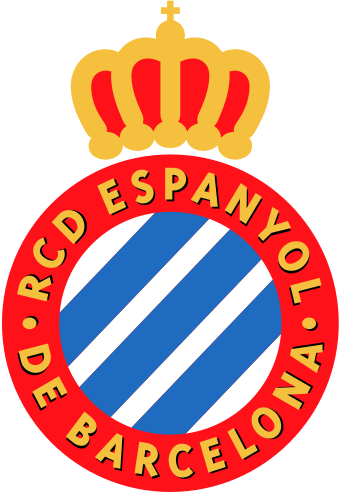Hans Schoenhofer on the Barcelona Methodology for Elite Soccer Player Development
Highly experienced, coach of coaches Hans Schoenhofer is a leader in the Barcelona player development methodology and has scouted and trained players in Spain for years. Sharing his time between Spain and the USA, Schoenhofer is dedicated to helping this generation of youth soccer players receive the best training possible.
The Barcelona and Catalonia Federation Methodology of player development is globally respected because it has a highly successful proven track record. Hans Schoenhofer comes from a world where soccer is the most important sport and he has traveled the globe training those who train youth soccer players and as a professional scout.
A mentor to those who wish to learn the Barcelona style of soccer training, Schoenhofer recently visited California to oversee several player and coach training sessions.
Here is Diane Scavuzzo’s exclusive interview with Schoenhofer on being a youth player himself, his lifelong passion for the beautiful game and his frustrations on players not thinking enough on the field.
“We don’t educate players enough,” says Schoenhofer.
Diane Scavuzzo: When did you first start playing soccer?
Hans Schoenhofer: I started as a player in Junior FC — a youth soccer club in Catalonia, Spain when I was 14 years old — in 1976. Junior FC is a high-level Academy just outside of Barcelona in Sant Cugat del Vallès.
I am now the Technical Director of Junior FC.
Diane Scavuzzo: What was that like? Did you also play for your school?
Hans Schoenhofer: I played in my high school, but the level was not good enough and Junior FC was a club where my father played, so we decided I would go there to play under Catalonia Federation flag.
Diane Scavuzzo: Did you play professionally?
Hans Schoenhofer: Yes. I played for Espanyol, Sabadell and a couple of local teams in Catalonia in the second division.
I started as a winger but I developed my best soccer as right offensive back.
Diane Scavuzzo: You also worked with Andres Iniesta and his camp programs – are you still doing this?
Hans Schoenhofer: I still am involved with Iniesta, but I am focused more on my job at Junior — and, also trying to develop our method here in the US with SDFC Academy – San Diego Football Center.
Diane Scavuzzo: You have been a coach in La Liga as well as a professional scout — with Villareal’s pro and youth teams?
Hans Schoenhofer: Yes — with Villarreal for five years as a scout when Victor Muñoz and Pellegrino were on the first team. I also worked for Espanyol in the second Team as a Head coach when Pocchettino was the head coach.
Also, I worked for FC Barcelona in several seminars and I attended the 2015 NSCAA Convention in Philadelphia three years ago with Joan Vilà, Head of Barça Methodology when he presented on the club’s style of play.
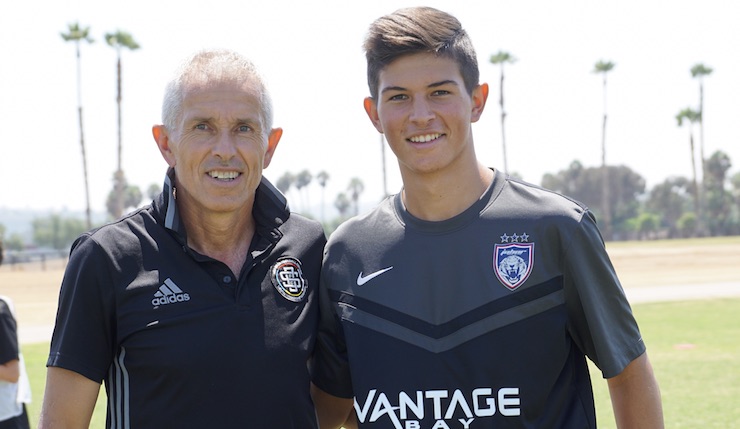
Diane Scavuzzo: What was it like to scout for players in Spain? What did you look for when scouting players?
Hans Schoenhofer: When you scout, you have to watch for several things and they are different if you scout a team or a player, of course.
To scout a player in a youth age, you have to be with the ability to see his potential in a two, three years.
To scout a professional player, the level of the player’s attitude, the intelligence, the personality, and even his family — all are important. Sometimes you believe a player is good but the club thinks differently because there is another player in this position who they consider to be better.
I had a great experience with a great player — I scouted and identified Sergio Busquets when he was 15 years old when he played for a club close to Junior. I saw Busquets several times and I told Villarreal that he could be a player for the first team.
Busquets was playing in youth soccer tournament and they scouted him with me. Ultimately, Villarreal decided that they had another player at the same level or better. One year later FC Barcelona signed him and four years later Pep Guardiola gave him an opportunity in the first Team.
Villarreal passed on Busquets and FC Barcelona picked him up — he is a great defensive midfielder for Barça and on the Spain national team.
Those kind of things really do happen.
Diane Scavuzzo: At what age does a youth soccer player need to be serious about training and focus only on one sport, if they have dreams of becoming a professional?
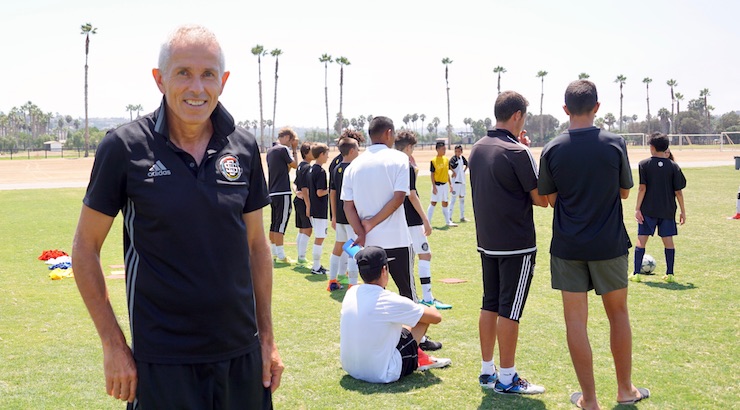
Hans Schoenhofer: In Spain, all Clubs in the Catalonia Federation train three days a week from the age of 8 years old.
When youth soccer players are 14 years of age, the training schedule increases to four days and the players also compete in a match, so they are training 5 days a week. At this
At this age, if a player is good, this is the best age to go and train at a professional Academy.
I don’t recommend to go at a younger age — the top youth soccer clubs change a lot of players in those younger ages.
It is better to develop a player — as we do at Junior and, if we have a player with enough level to go to Barça or Espanyol, we talk to them — and then create real opportunities for these players to move on. there are real options to go. But there are a few with this options.
But there are a few youth soccer players good enough.
In the last five years, two players signed for Barça and two for Espanyol.
Without passion it is impossible.
Diane Scavuzzo: How would you describe the Spanish soccer methodology?
Hans Schoenhofer: Simply the best-developed methodology. We understand the game having the ball and our slogan is own the ball own the game.
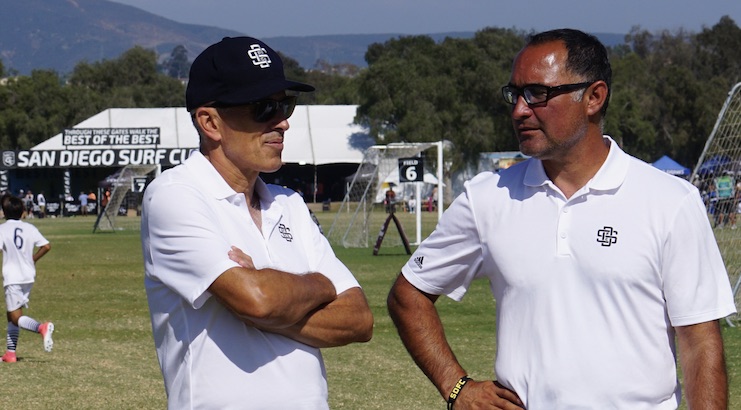
Diane Scavuzzo: Why chose to help develop youth soccer players in the USA?
Hans Schoenhofer: This was a coincidence. My son was playing Division I soccer with CSUN and — at the same time — Shervin Erfani contacted me when I was the Director Of Iniesta Camps. Shervin’s son, Massimo Erfani, was playing soccer in LA and my son was his coach, so it was easy to start a project together.
Diane Scavuzzo: What do you think of youth soccer in Southern California?
Hans Schoenhofer: I think you are in a privileged position.
The understanding of soccer is better here than the rest of the USA because of the Mexican influence.
In California, there are youth soccer players with more ability and a greater soccer IQ.
Southern California is in a good position to start introducing our methodology. The understanding of the game is a key factor to go to a professional level.
The weather also helps your boys and girls to have more months to play soccer.
In Spain, our kids play in the street, park or facilities since they are three, or four years old …every single day with our parents, friends and at school when it is break time — plus we play in Physical Education for 2 hours a week.
We spend most of the time in soccer — this adds up to a lot of hours developing our abilities.
You need to work under our methodology to develop the player and optimize the time.
Soccer is a collective game and all the relations between the players must be present in all the activities.
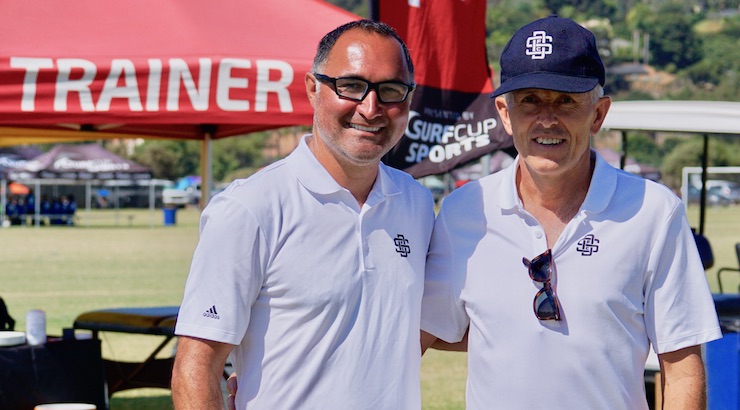
Diane Scavuzzo: When did you start working with Shervin?
Hans Schoenhofer: We decided to start with the SDFC Academy project in October 2015. I provide a Head Coach and Assistant Coach from Barcelona and also the Methodology for the player development.
Diane Scavuzzo: How often have you visited the USA in the past few years?
Hans Schoenhofer: I come two times a year to visit SDFC to make sure all works well — to organize the youth soccer and coach clinics and also to talk about new ideas and plans for the future.
Diane Scavuzzo: What about you surprises people the most?
Hans Schoenhofer: For me, the best surprise is how the families show their passion.
In Spain, the people watch soccer and only in special situations scream with emotion.
In the USA, the parents continuously are living the match with a high emotion.
This means that they are passionate about soccer, and this is needed to grow the game of soccer in this country.
Diane Scavuzzo: What is the accomplishment that you are most proud of?
Hans Schoenhofer: As a player, I overcame two important injuries and as a coach, I helped two different players to reach the professional level. I am especially proud of my efforts with Sergi Darder — he was a player at Español B who is actually in Olympique Lyonnaise.
Diane Scavuzzo: What do you think is the most important life lesson that you’ve learned so far?
Hans Schoenhofer: You need humility and want to continually improve.
In life, you need to have a clear goal, must be convinced and work hard every simple hour to get it.
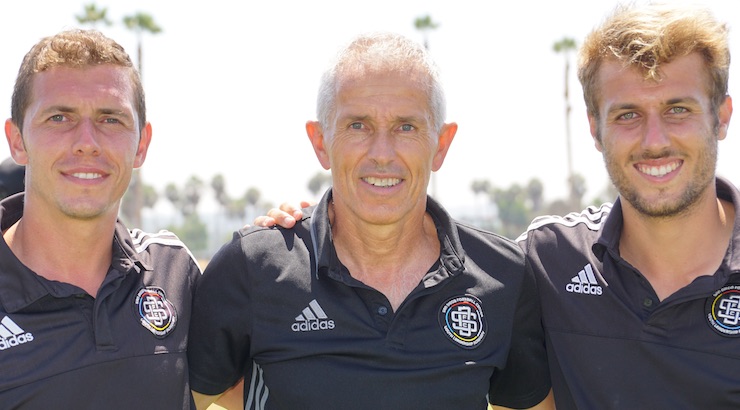
Diane Scavuzzo: What kind of mentor are you?
Hans Schoenhofer: I am a mentor involved at 100% — I want all the players and all the coaches feeling my presence. They have to feel the confidence I feel for them every time they see me. They know that I am here every year — to help them, to guide them.
Diane Scavuzzo: If you could turn the clock back — what would you do?
Hans Schoenhofer: What would I change, if anything? I would only change my confidence in front of the opportunities.
It took time for me to have enough confidence and show my strengths.
One thing is humility, and the other is to be too polite and shy — that it can make you lose opportunities.
Diane Scavuzzo: Who is your favorite professional player playing today?
Hans Schoenhofer: Messi and Iniesta. One for his ability and the other for his intelligence.
I was lucky because I lived always in Barcelona and I could see every weekend Johan Cruyff, Maradona, Ronaldo, Romario, Ronaldinho, Iniesta, Messi, Neymar play … I don’t like to decide for one, but I consider what Messi is doing is amazing — and, there is no other player who can do what he does.
Diane Scavuzzo: What is the biggest mistakes most youth soccer players make?
Hans Schoenhofer: They don’t think in the field. We don’t educate them enough.
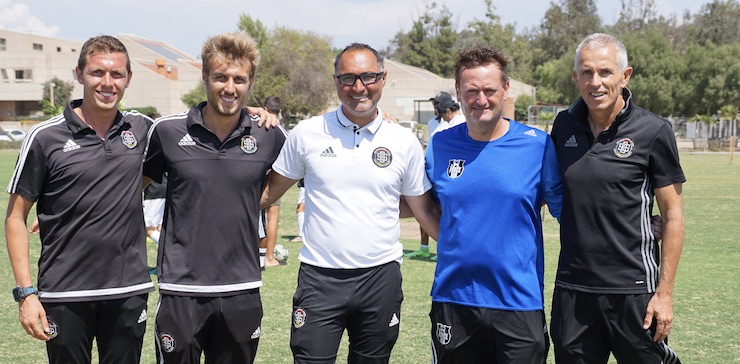
Diane Scavuzzo: What needs to change in American youth soccer?
Hans Schoenhofer: I think that you need to improve player development. The key is deciding which style of play, creating your methodology and being loyal to this idea and be focused on learning and improving.
This is a process which is never finished.
Diane Scavuzzo: Do you believe the USA ever win a FIFA World Cup?
Hans Schoenhofer: To win a world Cup you need years of work in the youth academies.
You have everything it takes to be successful — the players, the facilities, the money.
The USA needs to improve and define their own method of player development and I think being open to learning from successful methods – like ours — is important.
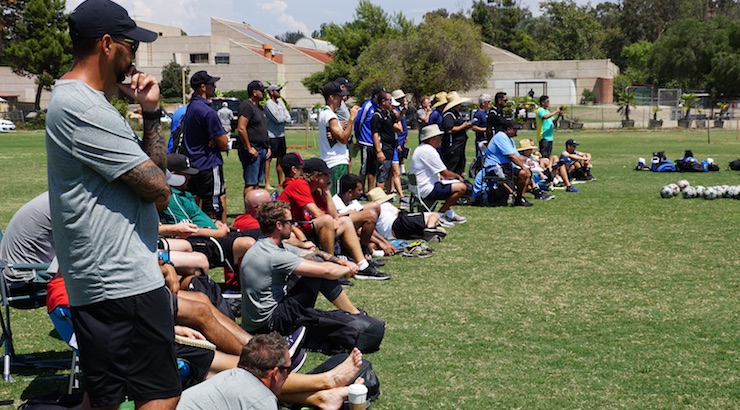
Related Youth Soccer News: SDFC’S SHERVIN ERFANI ON YOUTH SOCCER TODAY
Editor’s note: The LA Galaxy was incorrectly mentioned in the original publication of this article and has been corrected now. We apologize for any confusion this may have caused.


